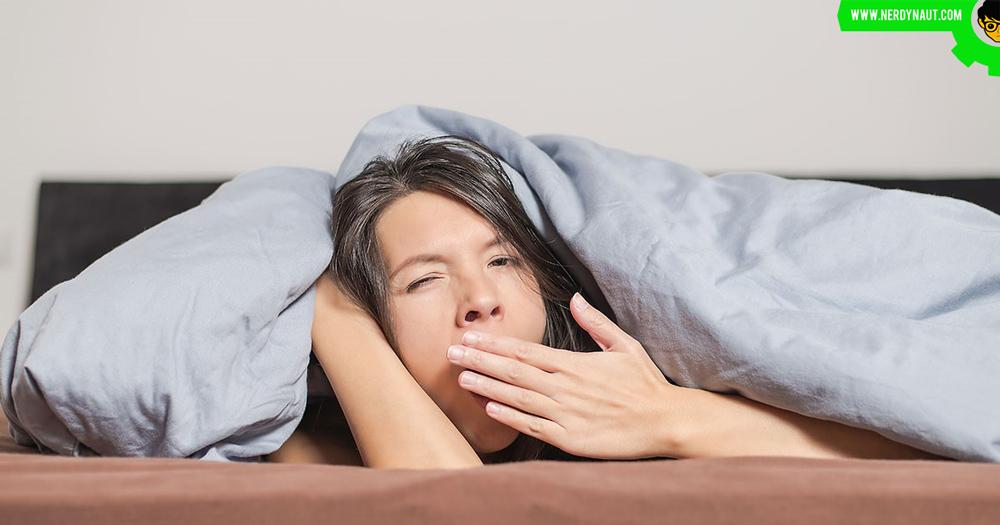As a human being, you are naturally wired to spend a third of your day sleeping. Going against this rule of nature could brew trouble for your health and general well-being. According to the national sleep foundation, adults need 7-9 hours for mental alertness, productivity and overall health. That said, you may not be able to loyally abide by these hours for one reason or the other. Sleep disorders such as insomnia, long work schedules or poor sleep hygiene are some of the factors that could contribute to few hours of sleep. Unfortunately, the Centre for Disease Control has damning reports about sleep in adults. The report says that 30% of adults sleep less than their recommended sleep duration of 8 hours. The report is disturbing given the effects less sleep could do to your body.
If unsure of your sleep health, here are symptoms you want to check out:
1. You are irritated by minor things
Healthy sleep contributes to your general well-being. That also means your physical and emotional health. If you find yourself overreacting to minor irritations, fatigue could be taking a toll on you. Rather, you stress levels could be an all-time high. Your quantity of sleep is instrumental in enabling you to remain balanced and emotionally controlled.
2. You want to sleep during the daytime
An adult who sleeps for at least 7 hours is mentally alert and has the physical capacity to carry on throughout the day, compared to an adult who sleeps less. If you find yourself dozing off at the workplace, chances are high you never slept well at night. If your body also needs caffeine beverages to maintain alertness, you are definitely not sleeping right.
3. You are adding weight
Gaining weight is most likely if you are deprived of sleep. Sleep controls your appetite hormones such as Leptin. Leptin helps in reducing your appetite, however, if sleep is lacking or little, the level of Leptin increases. An increase in appetite makes you snack more during the day which makes you gain unnecessary weight.
4. You have a lower sex drive
High levels of testosterone are linked to healthy sleeping. Having no romantic energy or low sex drive could be tell-tale signs of sleep deprivation or a lack of it. According to America’s National Sleep Foundation, lack of sleep makes you less energetic and stressful. This is bound to reduce your energy levels in bed.
5. Low productivity
Sleep is good for to help you amass the energy for another new day. Deep sleep also helps memory consolidation. If you are not sleeping enough, feeling physically exhaustive during the daytime is what follows next. For instance, if your work spills over into sleep time, chances are high you will spend the next day trying to doze off.
Your lack of focus on the task at hand or work is also a result of less sleep. Consequently, this affects your productivity. Sometimes, focusing on your work after lunch time is a problem. This probably stems from the extended effects of less sleep the previous night.
At one time, the Washington Times carried a phone survey that proved a lack of sleep worsens the occurrence of errors. The survey found that insomnia, a sleep-related disorder makes its victims likely to commit mistakes twice as much at their workplace. Confusing files and misunderstanding tasks were some of the errors they were found to be committing often.
6. Forgetfulness
Sleep helps to retain and process information. At the deep stage of sleep, memory is consolidated helping your brain remember the events that occurred and the people you met the previous day. Lacking enough sleep means your information will not be properly processed leading to a lack of performance the following day.
7. You find it hard coming up with the right word
The functioning of your frontal lobe could be affected by less sleep. If you sleep less, you may find it difficult coming up with the right words to speak. Your frontal lobe is pivotal in controlling your cognitive skills. Your cognitive skills pertain to memory, language, how you express yourself and your problem- solving skills. Sleeping less could have negative consequences on the performance of these functions making you less of a performer.
8. Make better your sleeping environment
Sleep deprivation can be handled if you are in search of a better sleep. A few adjustments to your bedroom routine and sleep environment could do. Sleep disorders such as sleep apnea also contribute to sleep deprivation. Currently, continuous positive airway (CPAP) therapy using CPAP machines is the most effective treatment for sleep apnea.
9. Take care of your beddings

You want to make sure your body is comfortable for the next 8 hours you will be sleeping. If sleeping on a less dense mattress, chances are high your body pressure points could be hurting. The resultant effect of this is that you wake up feeling stiff with painful joints. Sleep comfortably with an avocado mattress that not only gives you comfort to support your sleeping needs but is also eco-friendly.
10. Have a regular bedtime
When it comes to sleeping, randomness does not work. Your body works well with consistency. Sleep study experts recommend sticking to a regular bedtime pattern that trains your brain to release the sleep hormone melatonin inducing sleep. You also get the benefit of waking up at the same time daily.
11. Avoid caffeinated drinks before bedtime
Taking stimulants like coffee and tea are good to keep you awake when working late into the night. Unfortunately, this does not work well for your long-term sleep needs. Your body could fall into the habit of staying awake at night depriving you the valuable sleep you need.
12. The bottom line
Human beings have the tendency to postpone sleep in the pretext of pursuing work or other engagements. Entrepreneurs boast of how they sleep less to pursue their goals. On the contrary, this is not healthy as sleeping for fewer hours could lead to dire consequences on your health. Minor irritations, a low sex drive, forgetfulness are some of the consequences of little sleep. Sleep better by working on your sleep environment and bedtime routine.




